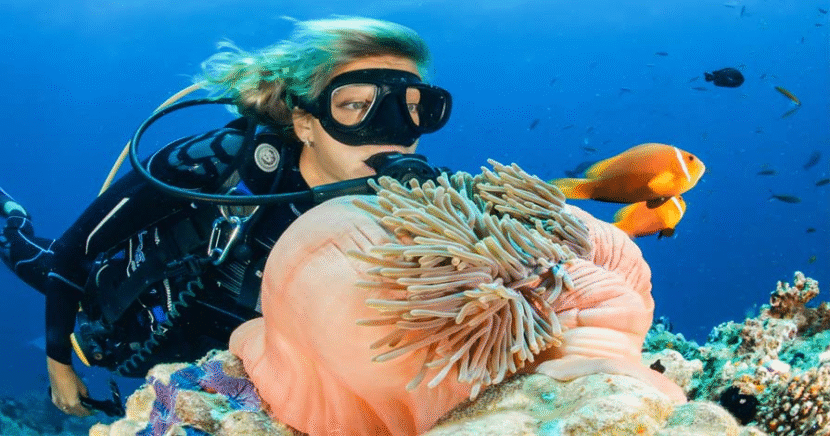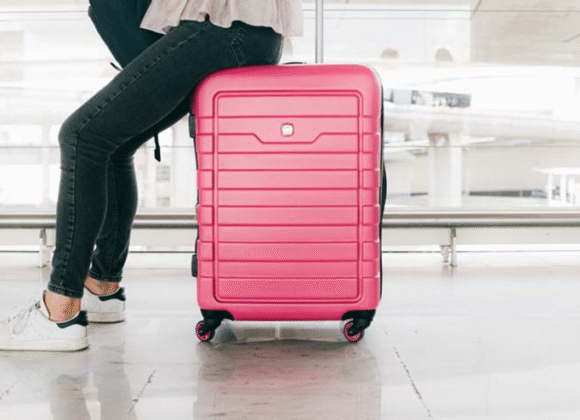Swimming with sponges and feeding macroinvertebrates in the dark depths of the ocean can be an enriching experience. Still, it takes some preparation and know-how to ensure your dives are as enjoyable as possible. Here are five scuba diving tips to help you get the most out of your Clearwater scuba diving experiences!
Knowing What to Expect When You Go Clearwater Scuba Diving
When you go scuba diving, it’s essential to understand what to expect. Here are a few tips to help you get the most out of your dive trips:
First, understand that scuba diving is an activity that requires considerable time and effort. You will need to dedicate a significant amount of time to training to dive safely and comfortably. Take the time to learn how to dive well; it will make your adventures much more enjoyable.
Second, be prepared for cold weather. Many people think that scuba diving in warm waters is excellent, but this isn’t always the case. Cold water can be hazardous if you don’t have the proper clothing and equipment. Ensure you pack enough layers to adjust your clothing as needed.
Finally, remember that scuba diving is an adventure. Don’t be afraid to venture out and experience something new; the ocean is full of surprises waiting for you!
Preparing for Your Expeditions
Before you go diving, it is essential to ensure that you are adequately prepared. Here are some tips to help you get the most out of your diving expeditions:
1. Familiarize yourself with the area you will be diving in. This will help you locate landmarks and dive sites.
2. Research the types of dives that are available in the area. There are several different types of dives that you can choose from, such as PADI open water dives, diving trips with a group, cave dives, and night diving expeditions.
3. Make a packing list. This will help you to pack the right gear for your dive trip. Make sure to pack everything you will need, including swimwear, a first-aid kit, and a mask and snorkel.
4. Make sure that your dive equipment is in good condition. Check all of your dive gear for leaks and cracks before your trip. If you encounter any issues, take them to a professional for repairs or replacements before departing for your expedition.
How to Stay Safe While Diving
One of the most important things you can do to stay safe while diving is to dive with a reputable organization. This will ensure that you receive the best possible diving experience and are adequately supervised.
It is also essential to follow basic safety guidelines when diving. These guidelines include wearing a diving suit, avoiding hazardous water conditions, and adhering to all safety procedures during the dive.
If you are ever in doubt about whether or not a dive is safe, always consult with a professional diver. They have years of experience and will be able to advise you on whether the dive is safe or not.
5 Scuba Diving Tips for Navigating Underwater
1. When scuba diving, it is essential to be aware of your surroundings at all times. Make sure to pay attention to the color and shape of the coral and other marine life to stay safe.
2. If you find yourself in a dangerous situation underwater, don’t panic. Use your head and remember your training. Think about how you would escape and then try to do that.
3. When scuba diving, always follow the dive leader’s commands carefully. They are responsible for your safety and will know what is best for the group as a whole.
4. Always use a dive light when diving underwater. This will help you see what’s around you and keep you safe from danger.
By following these tips, you can optimize your diving experience and ensure a safe and enjoyable trip every time.
Tips for Scuba Diving for Having Fun While Diving
One of the best ways to enjoy a scuba diving trip is to have fun while diving. Here are some tips to help you do just that.
1. Make sure you know the safety guidelines for scuba diving. Always follow the instructions of your instructor and stay within the safe limits of the dive site.
2. When swimming, try to keep your body in a straight line so you don’t create waves that could cause you to lose balance or speed up. This will make it easier for you to stay safe and avoid obstacles underwater.
3. When diving, take plenty of pictures and videos so you can remember you’re amazing dive experiences for years to come. You won’t be able to put them into words, but photos and videos can capture the beauty of your dives in a way that words never could.
What to bring with you on a scuba diving trip
When planning a scuba diving trip, it’s essential to consider what to bring with you. Here are some tips to help you out:
– Beach towels: You’ll need these to dry off after swimming or diving.
– Sunscreen: Apply sunscreen before going swimming or diving, and reapply every two hours while underwater.
– Snorkel and mask: Bring your snorkel and mask so you can explore the aquatic environment.
– Packed lunch: Make sure to bring a packed lunch with you so you don’t have to waste time shopping while on your trip.
– Scuba diving t-shirts.
By following these tips, you’ll be able to enjoy your scuba diving trip to the fullest.
What to do if you get lost underwater
If you’re diving into unfamiliar territory, it’s essential to know how to get back to the surface. If you get lost underwater, the first thing you need to do is contact your dive team or guide. They will help you find your way back to the surface.
If you can’t find your dive team or guide, the best course of action is to start swimming in a straight line toward the surface. Be sure to keep an eye out for landmarks and objects on the seafloor that you can use as reference points. If you can’t see either of these things, stop and take a moment to assess your situation. You may need to wait for someone else to come along and help you find your way out.
How to avoid scuba diving accidents
1. One of the most important things you can do to avoid scuba diving accidents is to be aware of the surrounding area. When diving, keep a watchful eye on your surroundings at all times and avoid getting too close to any obstacles.
2. Always use common sense when it comes to diving. If something looks unsafe, don’t do it. If something doesn’t look right, steer clear of it. And if you encounter an obstacle while diving, be sure to stay calm and carefully evaluate the situation before making any decisions.
3. Make sure that you are adequately prepared for your scuba diving expedition. This means having the proper equipment and being adequately trained in its use. Ensure you know what to do in the event of an underwater emergency, and be aware of the risks associated with each dive location.
By following these tips, you can avoid scuba diving accidents and get the most out of your expeditions.
Tips for packing light when diving
When you’re heading out on a scuba diving expedition, it’s essential to pack as light as possible. This will conserve your energy and make the trip more enjoyable. Here are some tips for packing light when diving:
1. Make sure to pack only the items you need for the expedition. Don’t bring extra gear that you won’t use or that will take up space in your bag.
2. Store your dive equipment in a waterproof container so it doesn’t get wet during the trip.
3. Bring only the necessary clothing and accessories. If you don’t need them, leave them at home. This will save weight and space in your bag.
4. Pack snacks and drinks in small containers that you can easily carry with you. This will help to avoid overweight baggage fees when you arrive at your destination.
By following these tips, you can make your scuba diving expedition as light and compact as possible.
How to choose the right scuba diving equipment
One of the most important things you can do when planning your scuba diving trip is to choose the right equipment. There are numerous pieces of gear available, and it can be challenging to determine which one is right for you.
Here are some tips to help you choose the right scuba diving gear:
1. Research your needs. Make a list of what you want to accomplish while diving, and select the type of scuba diving gear that will best support those goals. For example, if you’re going to explore caves or swim with large fish, you’ll need different types of scuba diving gear than someone who just wants to relax on the reef.
2. Consider your budget. No matter how good your research is, there is no way to know for sure what will fit within your budget. Try different pieces of equipment until you find something that meets your needs and fits within your budget.
3. Be realistic about what you can and cannot do. If you have mobility limitations, for example, don’t expect to be able to dive deep underwater or participate in strenuous activities like freediving. Be honest with yourself about your abilities and select equipment that will allow you to have a safe journey.
How to behave while diving
When scuba diving, it is essential to remember the following tips to maximize your experience.
First and foremost, always respect the dive site. Do not touch any plants or rocks on the dive site. Doing so could damage them and may even lead to dangerous currents.
Also, be aware of your surroundings at all times. If you see something strange underwater, do not hesitate to contact your dive guide or another member of your team. Scuba diving can be a fun and exciting activity, but it is also an incredibly safe one. Follow these simple tips to ensure you enjoy your experience without any accidents.




